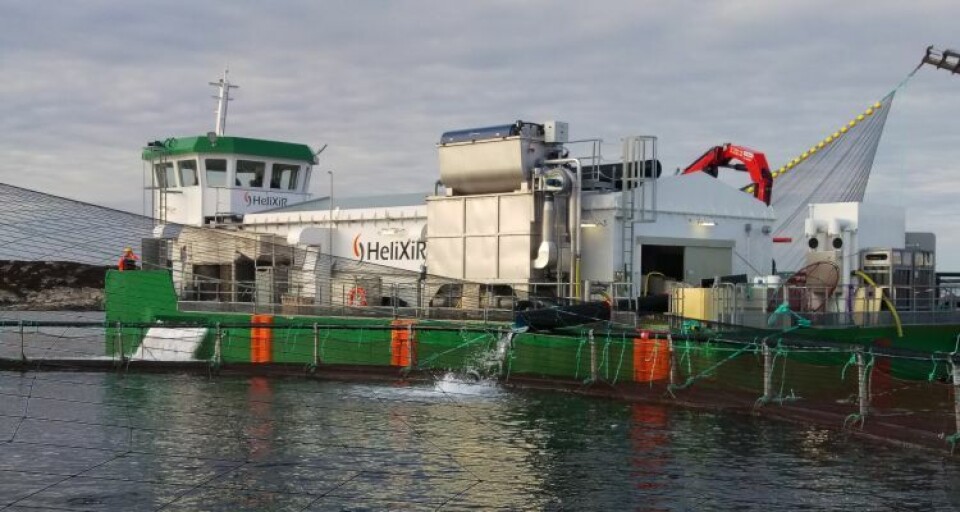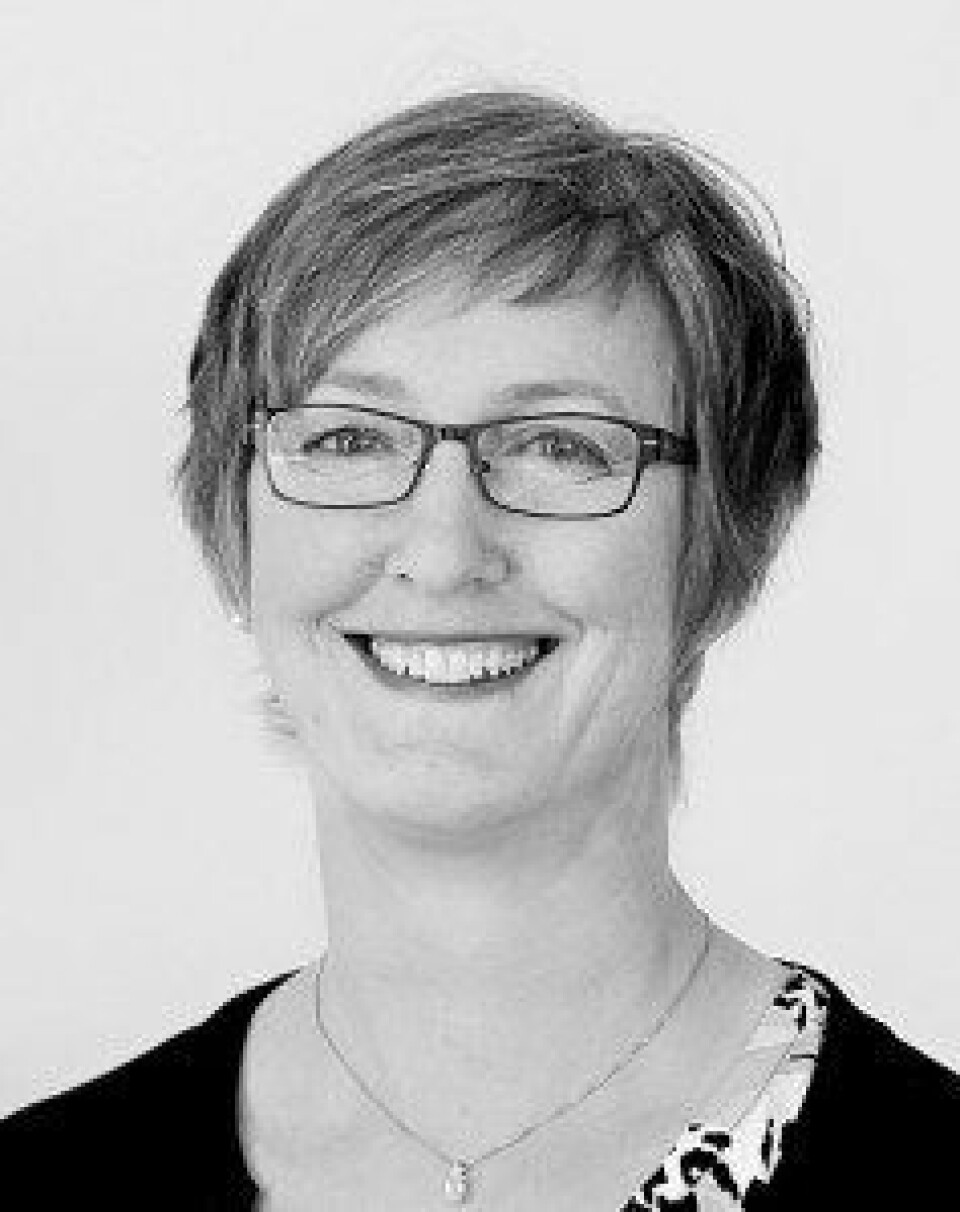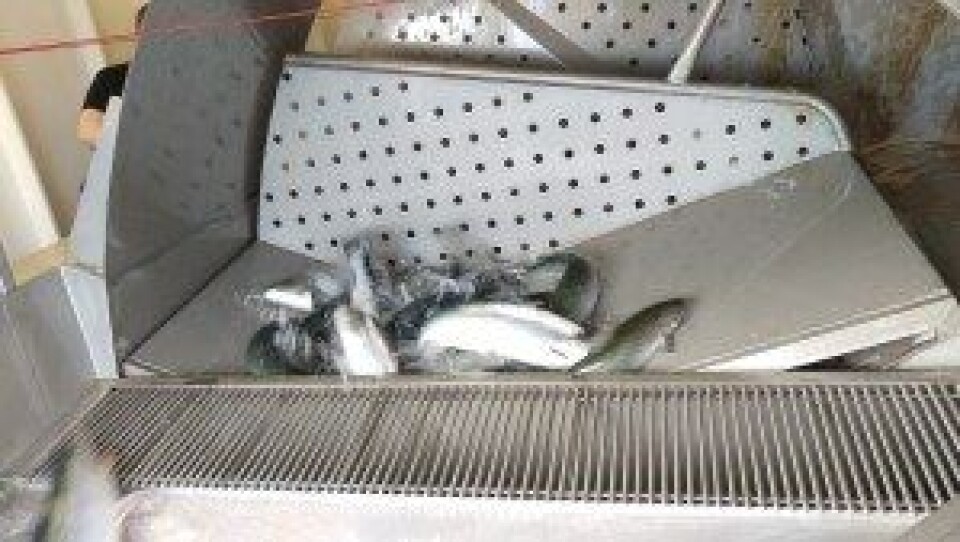
Promising trials for treatment barge
Stranda Prolog’s prototype Helixir barge was delivered to the Norwegian fish farmer Måsøval in late January to conduct tests on fish welfare before they embark on further trials with lice treatments.
“We strongly believe that this is a much better method than the one that is currently used for medical treatment of salmon,” said Anne Sofie Utne, who has been hired by Måsøval to manage the project.

The barge will significantly reduce drug use and emissions, and also guarantee zero emissions of sea lice and their eggs.
“If we succeed in the testing phase, we will be able to offer a new tool for the treatment of fish with no environmental impact. We hope to prove this with our partners in the project implementation,” says Utne.
Måsøval thinks the barge should be the preferred method for treating fish against parasites, as well as provide a tool for other fish handling tasks.
“After an initial trial to clarify that the barge works well in terms of animal welfare, the real work begins – testing different treatments,” she said.
She notes that the Norwegian food safety authority regulations related to new technologies mean that the company must prove that this asset is safe to use.
“Trials with the Veterinary Institute and Aquaculture Service AS are ongoing and we greatly appreciate that the FHF has helped to fund the research academic costs of the project. Once we have passed through the eye of the needle then we will start cautiously testing established and potential new drugs. So far we have tested the prototype and have seen promising results in terms of animal welfare,” says Utne.
The company wants the technology to qualify for a broad range of delousing treatments – the trial with the National Veterinary Institute will soon be finished and Utne hopes to see the new technology adopted for further testing as soon as possible.
She also believes the project should be awarded a special development licence from the Norwegian authorities, which would allow for the company to trial the system in the field on a larger scale. And, although it is one of a number of projects – including pioneering designs for offshore farms developed by Nordlaks and Salmar – that is currently awaiting approval, Utne points out that it was one of the first projects to lodge an application.

“Måsøval was also one of the first applicants for the latest batch of development licences, and the Directorate of Fisheries has said it aims to provide the first applicant an answer in the spring,” she says.
“Måsøval are undertaking a big job for the industry by taking biological and economic risks through testing of a new method and technology. If we succeed it will bring significant environmental benefits, better fish welfare and lower mortality through delousing drugs – long-term gains for the industry which should be emphasized in the Directorate of Fisheries assessment of the application,” Utne adds.























































